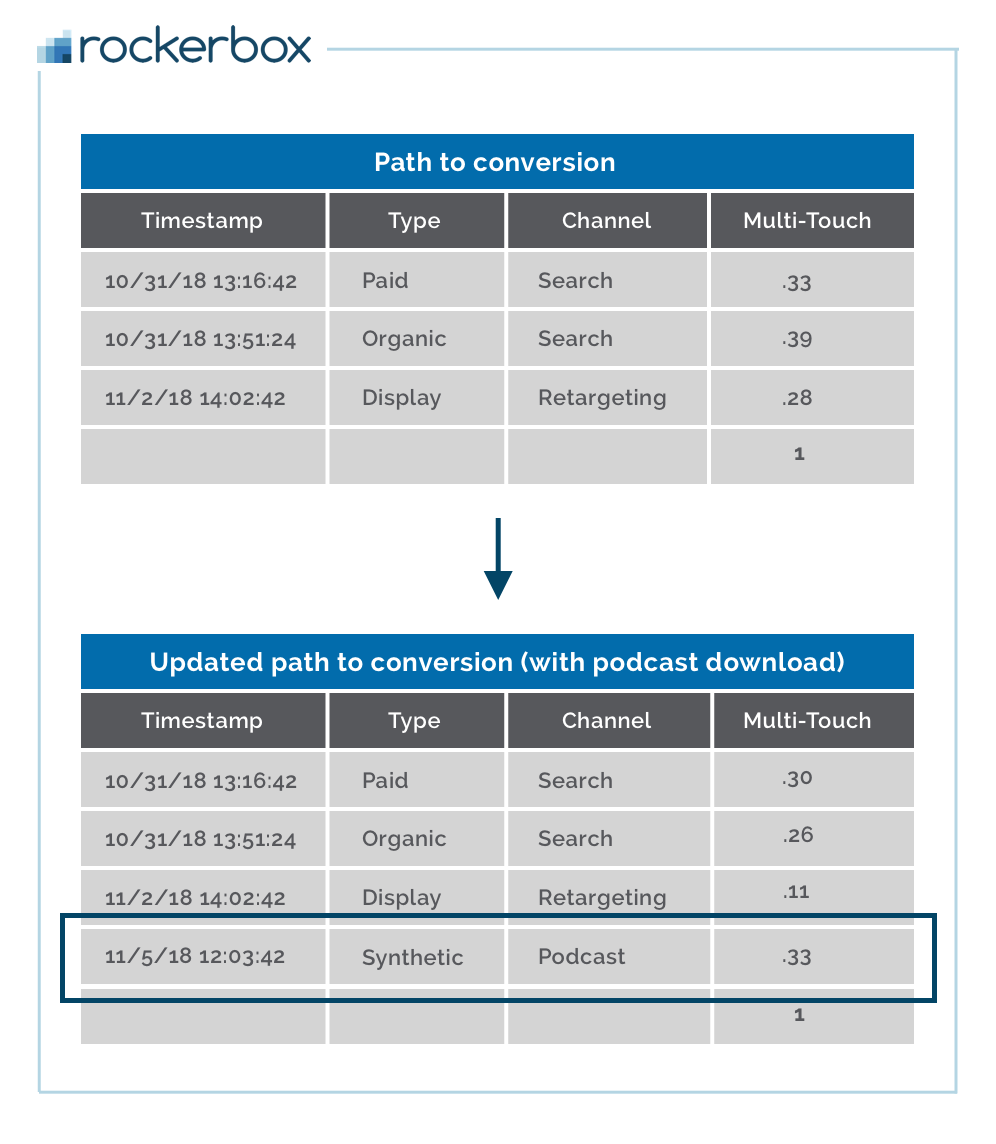These days, you’re probably hearing a lot about podcasts. My morning subway commute is filled with people listening to them. I’ve also gotten a few invites to “podcast clubs” — aka, the new book clubs.
A result of podcast popularity: More and more brands are running ads on them. A few brands (Blue Apron, Away and Lively) have even launched their own podcasts.
This led me to thinking about podcast attribution.
Why podcast attribution is tricky
When someone is “streaming” a podcast from iTunes, Google Play or another hosting platform, they're not actually streaming it. Podcast hosting platforms download the media to people's devices before playing them.
Once the podcast downloads, the hosting platform has no way of knowing how much of the podcast someone listened to or if they listened at all.
Having no idea who's listening makes it pretty tough to know if your podcast marketing efforts are worthwhile.
So, how do marketers know if their podcast marketing is working?
I’ve learned that podcast tracking will never be perfect. But I also believe that we shouldn’t let perfection be the enemy of the good. Doing the tracking mentioned below will improve your podcast ROI over time.
1. Promo codes: You can mention a unique promo code in your podcast script. For example, you can tell listeners to use promo code PODCAST at your site’s checkout page for a special offer. Then you can track sales that used the promo code and attribute them that back to your podcast.
2. Vanity URLs: Notice how podcasters will say something like, “Go to X.com/X" over and over again? It’s because they want to take credit. Directing listeners to a unique URL lets you track via Google Analytics any conversions that came through.
3. Surveys: Ask users at the point of signup or afterwards via email, “How did you hear about us?” You probably won’t get a response from 100% of the people you survey, but getting enough responses can help fill in the gaps for attribution you couldn’t get elsewhere.
The semi-happening world of podcast tracking
It’s also possible to connect downloads to conversions on your site.
Here’s how: You can work with an attribution provider to add a redirect URL to the podcast download URL. (Doing this requires the podcast hosting platform updating its RSS URL to include the redirect and that they’re open to doing this.)
Then, the attribution provider can attempt to connect the IP that downloaded the podcast to IPs of people arriving on your site. Definitely taking a wide brush here as tons of people are on the same IP all day (everyone at your office is on one IP for example) but it’s something.
Connecting a podcast download to a user
Once you figure out if someone downloaded or listened to the podcast, you need to figure out how much “weight” or credit that touchpoint should be given.
This depends on a couple of things:
- Your attribution model
- Other types of marketing someone was exposed to
Say you’re using a multi-touch attribution model, and you’ve also been running search and display ads. You would need to add the podcast download to the user’s conversion path and rerun the attribution model.
The process might look something like this:
 Notice how conversion credit was assigned to each marketing touchpoint before and after the podcast download. The second image gives you an idea of the true impact of your podcast.
Notice how conversion credit was assigned to each marketing touchpoint before and after the podcast download. The second image gives you an idea of the true impact of your podcast.
Overall, podcast tracking is still in its early days. We’re in store for hearing podcasters shouting vanity URLs over and over for a while. But as podcast marketing continues to get more popular, we’ll also see better tracking.
 Google
Google Facebook
Facebook Instagram
Instagram TikTok
TikTok Snapchat
Snapchat Reddit
Reddit Pinterest
Pinterest


.png?width=50&height=56&name=medal%20(1).png)








